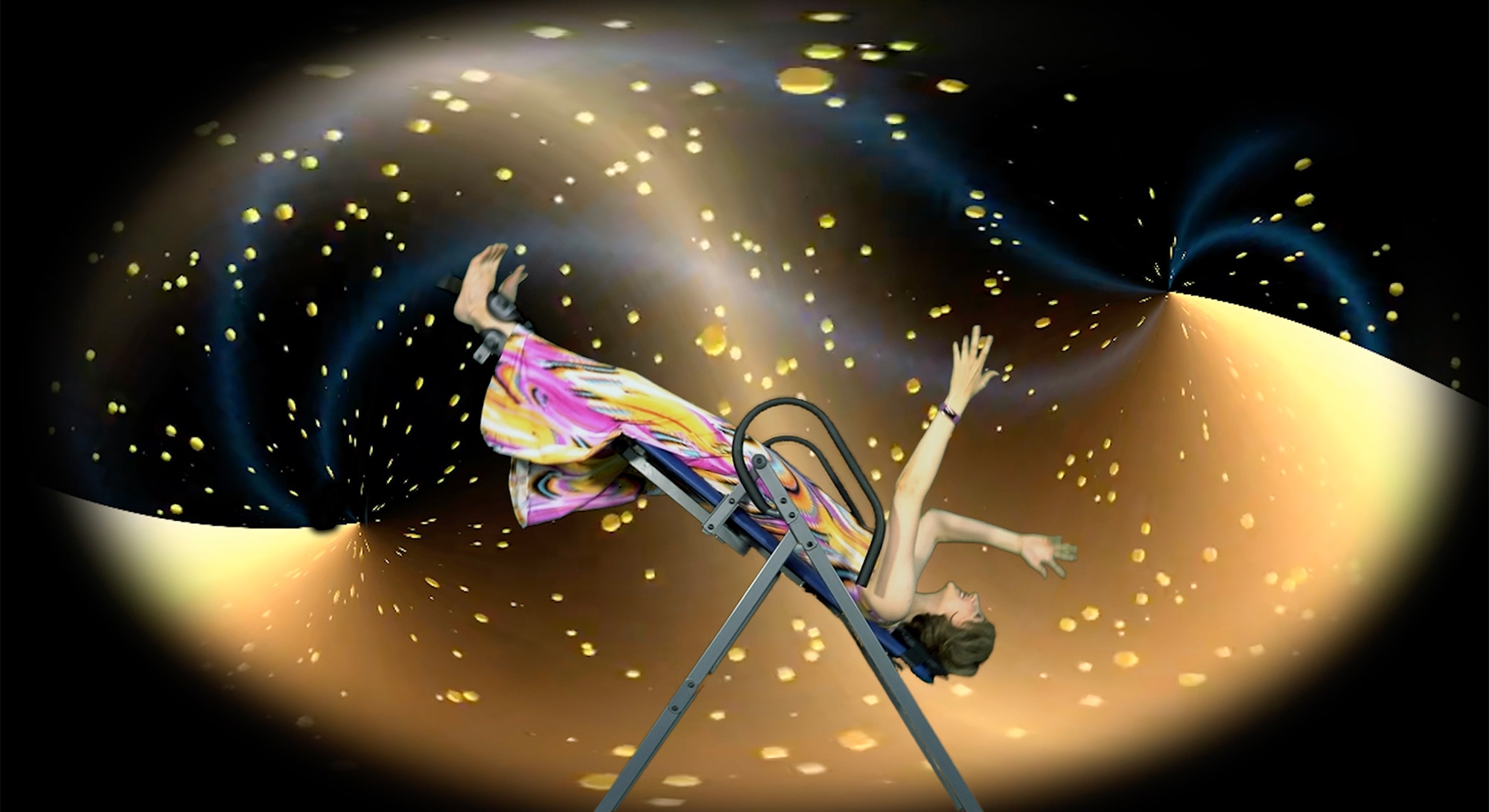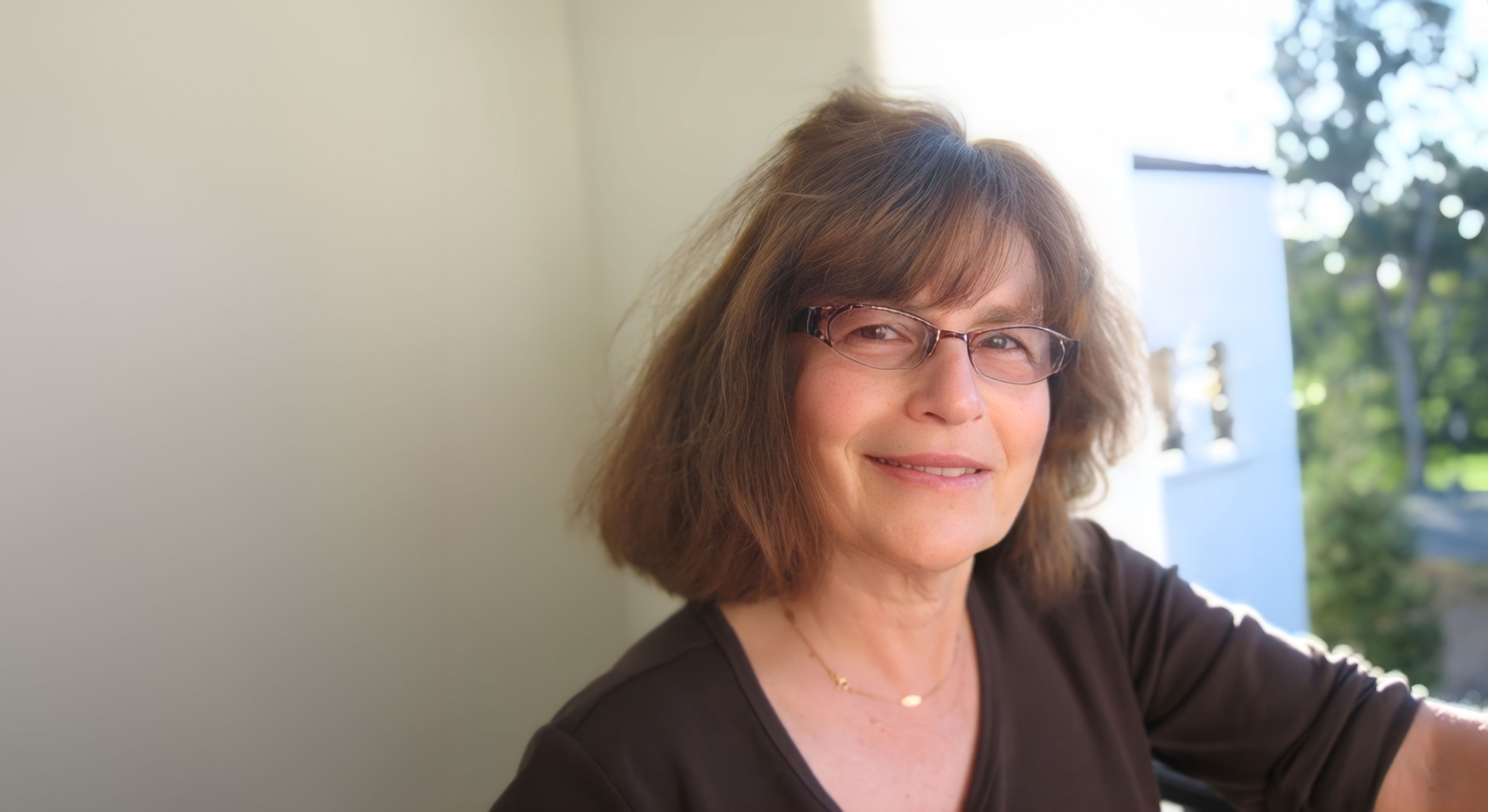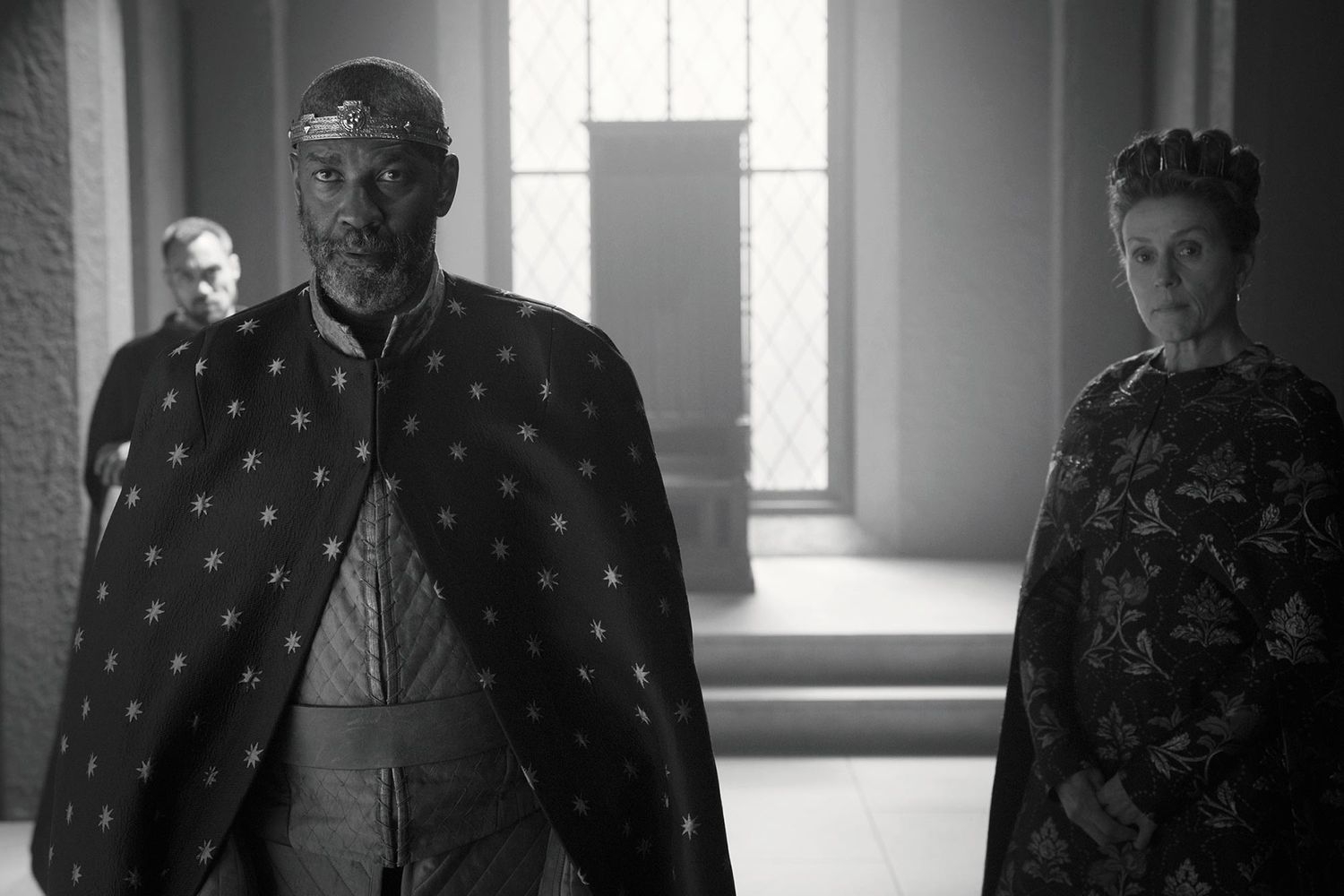
Turning Shakespeare’s plays into films is a tricky business. Cinematic imagery and naturalistic acting are not always a comfortable fit with their heightened language and inherent theatricality.
But sometimes, gems emerge. The consensus of critics and scholars is that Joel Coen’s 2021 “The Tragedy of Macbeth,” starring Denzel Washington and Frances McDormand, is one of them. With its striking, nearly abstract visuals and quietly intense performances by stage veterans, it is a highly effective telling of this deeply disquieting tale.
“It conjures for me a mood of claustrophobia and fear,” said James McNamara, a television writer and a lecturer in film and media studies at UC Santa Barbara. “We’re staring into the eyes of evil.”
“It’s a stunning film,” agreed Jim Kearney, associate professor of English at UC Santa Barbara. “It has a very abstract quality that lends itself to the theatrical origins of the material. The minimal framing puts all the focus on the language and the performance.”
Santa Barbarans will have a rare opportunity to see the film on the big screen Thursday, Feb. 29 at UCSB’s Pollock Theatre. Afterwards, Kearney will speak with its director, Coen, and its Lady Macbeth, McDormand, about their interpretations of the early 17th century play, and the process of creating the film.
All available seats for the free event have been reserved, but a first-come, first-served standby line will be formed at the door the night of the event.
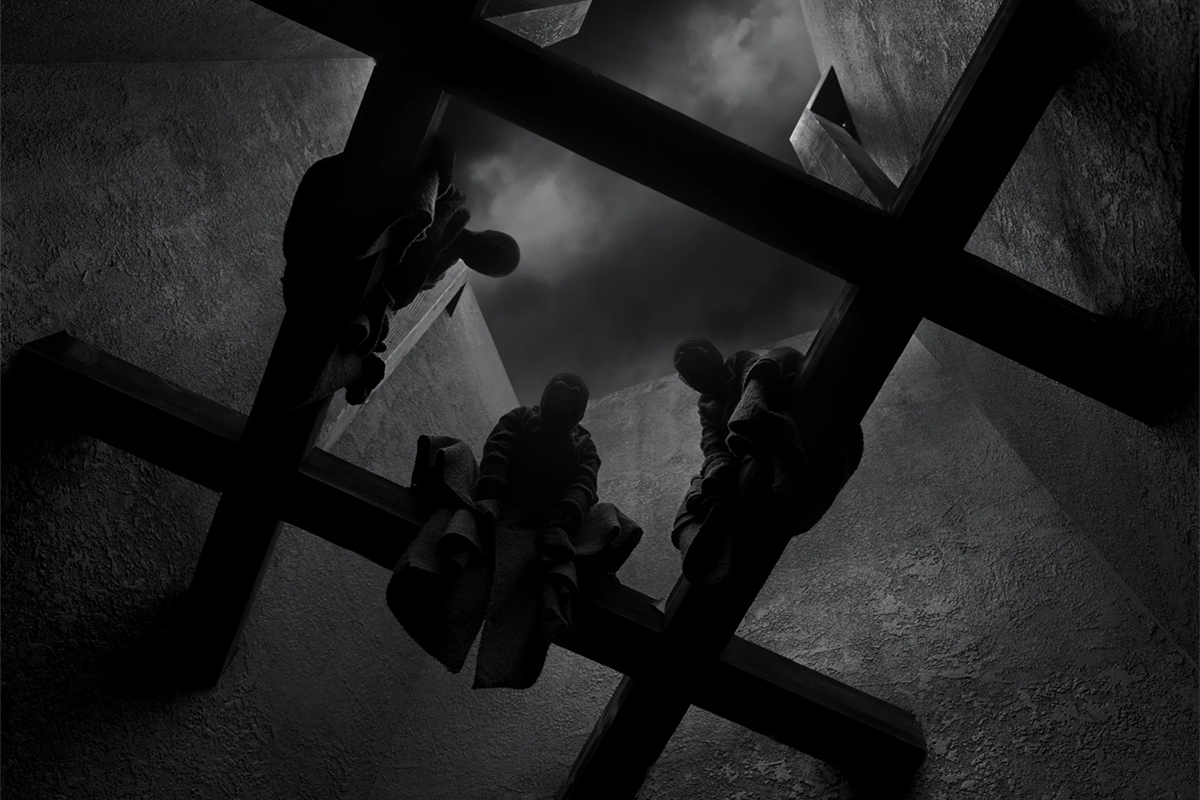
“Macbeth” is a favorite play of filmmakers. There are many cinematic versions of the tragedy, in which the desperate ambition of a husband and wife compel them to commit multiple murders. Famous ones include those of Orson Welles, Roman Polanski, and, most celebrated of all, 1957’s “Throne of Blood” by Japanese master Akira Kurosawa.
“It’s a great play that lends itself to film,” said Kearney. “It’s the shortest of Shakespeare’s tragedies; it’s very tightly focused, and it’s got an otherworldly quality to it. It’s largely about mood and atmosphere, which is something filmmakers are great at conjuring.”
What’s more, the central theme — the temptation to amass political power by discarding ethics and morals — is both universal and “all too relevant to us today,” McNamara added.
“Macbeth, unlike Richard III, doesn’t start the play as a villain. He’s a good man who feels conscience and fear. We watch him descend into ruthlessness.”
One important difference between Coen’s film and other stage and screen productions of the play is the age of the central couple. Both Washington and McDormand were in their 60s when the movie was filmed, making them a full generation older than most actors who play the roles.
Having been married for so long, the film’s Macbeths “are people who really know each other,” Kearney said of the characters. “I heard certain lines as I never heard them before, precisely because of their ages. When they’re talking about the murder they’re about to commit, you get the sense of a dance between two people who know each other’s moves.”
“In Justin Kurzel’s 2016 version of ‘Macbeth,’ the couple (played by Michael Fassbender and Marion Cotillard) were younger, and they had just lost a child,” noted McNamara. “The fact they were grieving parents played a role in their motivation. This film places more focus on the sense of time running out, and wanting to grab hold of an opportunity before it’s too late.
“Having the characters be older gives a sense of that marriage as being comfortable and lived-in,” he added. “It makes it clear it was very much a partnership between the two that caused the murderous events to unfold. To me, that’s central to ‘Macbeth.’ The historical argument that Lady Macbeth is solely responsible for influencing Macbeth to kill King Duncan is a sexist interpretation — and just wrong. These crimes could occur only because the two of them are together.”
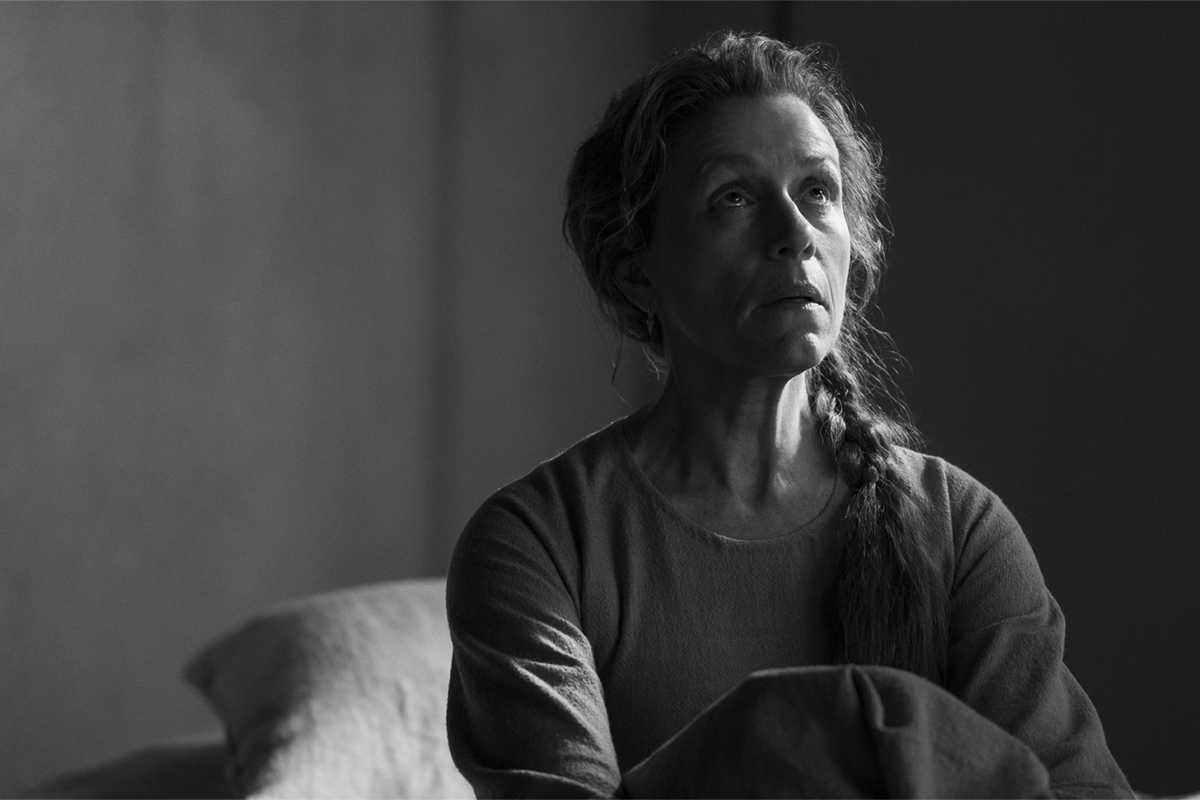
Another key decision Coen faced was how to craft the look and feel of the film. He decided to eschew realism, utilizing black-and-white cinematography and the sparest of sets. The result is a kind of hybrid of theater and cinema.
“The action takes place in a kind of theatrical space,” Kearney noted. “On the other hand, no one’s trying to project to the rafters. That’s part of the filmic quality of it. These are actors who could portray the roles on stage (McDormand did so in Berkeley in 2016), but their delivery of the language is for film.”
So what does Kearney plan to ask the director and leading lady in the post-screening discussion? “You have an ensemble that is studded with terrific actors,” he said. “What was their process of putting this together? Did they have a lot of rehearsal time before they started shooting?
“I’ll also have to ask about the phenomenal performance of Kathryn Hunter as all three of the weird sisters. She creates a whole world with her voice and her presence. She hits a note that establishes the atmosphere, the vibe, of the whole thing.”
“Watching Hunter’s performance is one of the joys of this film,” agreed McNamara. “Shakespeare is playing with the question of to what extent the witches are real, and to what extent they are products of Macbeth’s mind. With my classes, I have compared the openings of a number of film versions of ‘Macbeth,’ and this is the one I find the most chilling.”
Those chills should be even more intense at the Pollock Theatre, which is “a great place to see, and hear, films,” Kearney said. “It has such a specific aesthetic. Seeing it on that big screen will be a thrill.”
Shelly Leachman
Editorial Director
(805) 893-2191
sleachman@ucsb.edu
